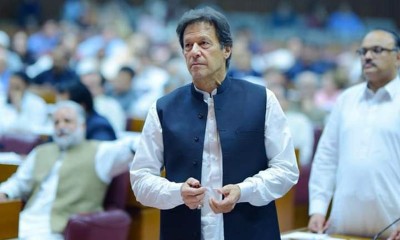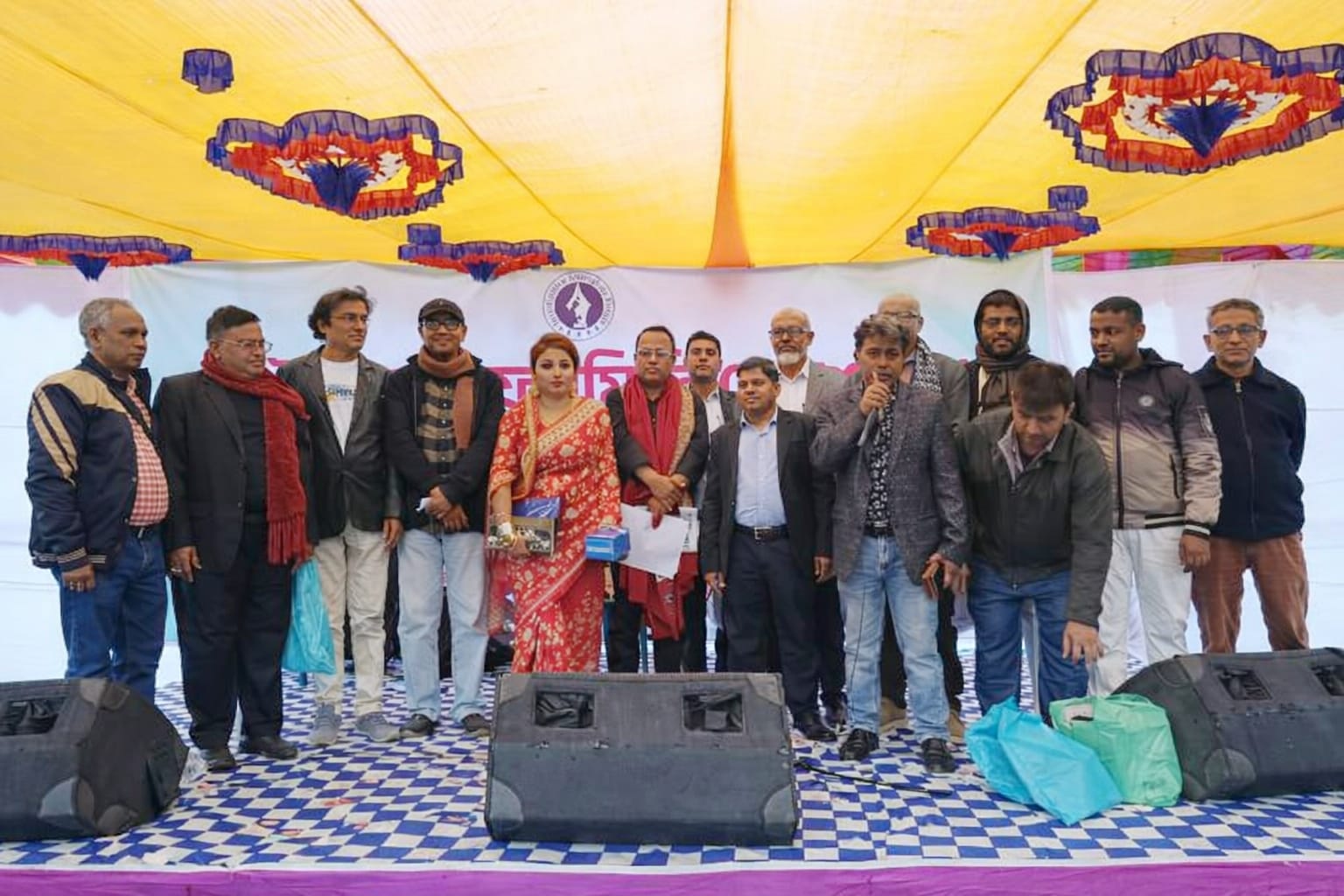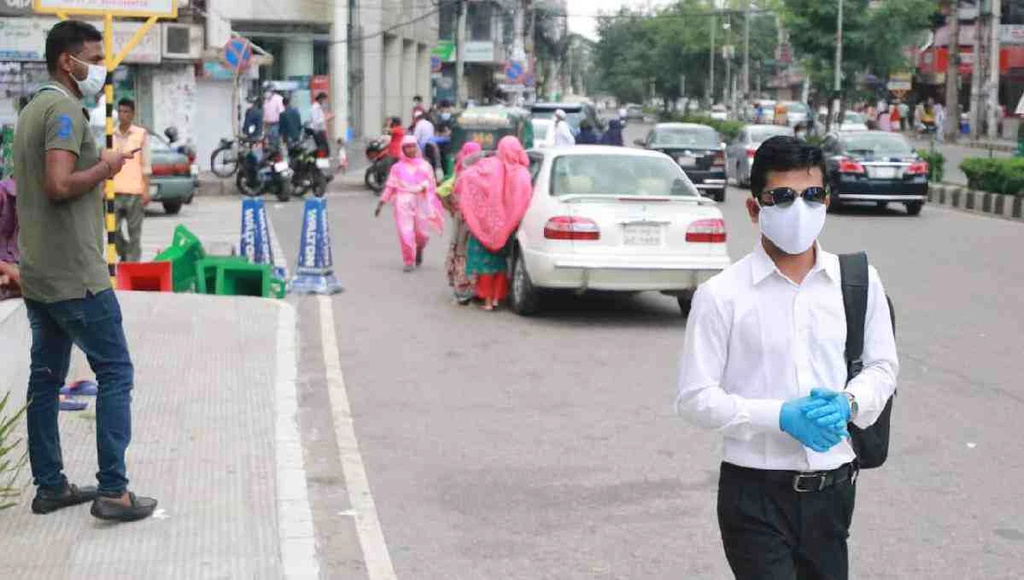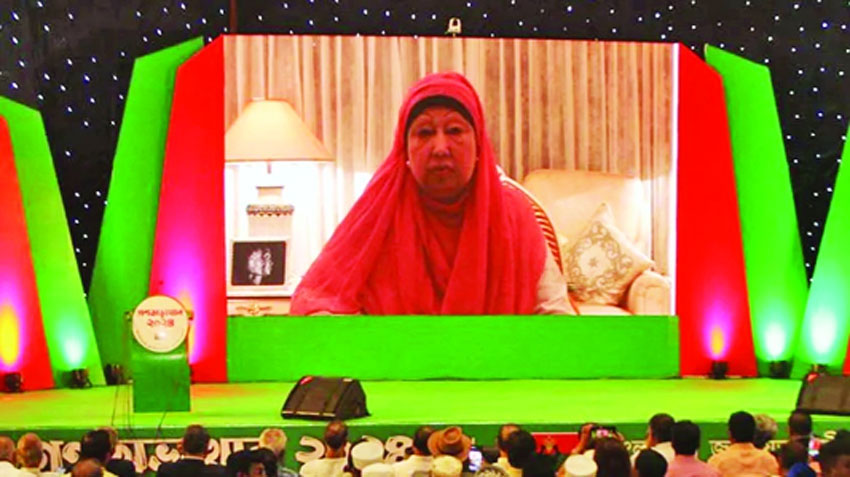- 2022-04-10 23:35:03
- LAST MODIFIED: 2026-02-28 06:13:29
The fall of Imran Khan
Syed Badrul Ahsan

Pakistan’s triumphant political opposition, now poised to form a new government for the country, has cheerfully welcomed citizens to Purana (old) Pakistan. Following the defeat of the Pakistan Tehrik-e-Insaf (PTI) government of Imran Khan in a parliamentary confidence vote — 174 lawmakers in the 342-member assembly chose to eject the government from office — it is certainly the return of politics as usual in Islamabad.
Politics has not been of the usual sort in Pakistan over the past month. For one thing, the ouster of the Imran Khan government by parliament is a first in the country’s troublesome political history. For another, it remains to be seen how those politicians who came together to remove Imran Khan from power now get into the more difficult act of forming a government and staying together in such a union.
There is of course a third factor here, which is the very important question of how the Pakistan army sees its role in these new circumstances. Much as political elements in Islamabad might try to dismiss the notion of military involvement in what has just transpired in the political arena, there can be little denying that the army remains a potent force, an unavoidable arbiter in politics if you will, in Pakistan.
Imran Khan should be knowing this better than anyone else. His rise to power in 2018 had the blessings and indeed the support of the soldiers in much the same way that the ascent to national leadership by Zulfikar Ali Bhutto in late 1971 was. The irony between then and now cannot be missed. Bhutto was raised to political prominence by the army and then dumped by it.
Today, it has been Imran Khan’s misfortune to come by a similar experience. Effectively, therefore, the Pakistan army remains a driving force in politics in Islamabad. When the army does not want a politician to continue to hold high office, the politician must go.
But that does not absolve Imran Khan and his government of the gross incompetence and misdemeanours that have now led to their fall. The PTI has by and large been a crowd of turncoats, individuals who had served other political parties before joining the Khan bandwagon. Worse, in these three years-plus since 2018, the ineptitude of the government became increasingly manifest, especially in its handling of the economy. Prices have consistently moved up, with citizens gasping for mere survival. The rupee remained in free fall. Dealings with the IMF turned out to be difficult.
The promise of change, of what he grandly called a Naya Pakistan, was a promise Imran Khan could not deliver. And that failure was quickly compounded by increasing degrees of hubris. The denigration of the opposition, the attempt to convince Pakistanis that the PTI was the answer to their problems, that no other politician or party mattered were dark ideas that pushed Imran Khan to the precipice.
And then he hastened the fall of his government over the cliff by the egregious manner of a dissolution of the national assembly when it appeared the assembly would vote him out of office. It was a scene where a suddenly power-hungry Imran Khan displaced the change-maker Imran Khan of the old days.
He has now paid a price. With the Supreme Court robustly rejecting the PTI government’s act of chicanery and restoring the national assembly and seeing to it that the confidence vote was conducted under the provisions of the constitution, democratic politics insofar as it applies to Pakistan has for now been restored.
Liberal opinion in Pakistan has cheerfully welcomed the intervention of the Supreme Court, for the good reason that the judicial judgment has in effect been a new repudiation of the discredited doctrine of necessity propounded by the likes of Justice Mohammad Munir in the Ayub Khan era.
A number of lessons can be drawn from the drama played out in Pakistan over the past many weeks. But beyond that the question remains: now that the Supreme Court has overseen the defeat of a government in parliament through its unanimous decision that the move to dissolve the national assembly and prevent a confidence vote was unconstitutional, will it be in a position to extend its reach to clip the wings of the powerful army?
Pakistan’s armed forces remain an assertive determinant of foreign policy and issues of national security, areas presidents and prime ministers have not been permitted to step into since the ZA Bhutto years. Imran Khan’s recent squabble with the army over the appointment of a new national security chief is an instance. The army prevailed.
That said, Imran Khan and his colleagues, among whom have been the arrogant Fawad Chaudhry and Shah Mehmood Qureshi, did themselves no favours by tarring the opposition with the brush of treason. Openly referring to opposition politicians as traitors showed up the government as a hollow vessel. Add to that the fallen prime minister’s desperate moves to whip up anti-American hysteria to ensure his continued stay in power.
Imran Khan’s failure in the last three years and more to build a good working relationship with the opposition, his all too evident desire to portray himself as a messiah who would solve every problem in Pakistan, his poor understanding of economic issues and diplomacy proved his undoing.
In the end, Imran Khan fell on his own sword. His sorry depiction of himself as a new Zulfikar Ali Bhutto in a defiance of the world was properly ridiculed in Pakistan. As a political commentator in Islamabad put it, it was a case of a philistine comparing himself to a visionary.
The last word: politics in Pakistan, post-PTI, will be interesting to watch. On the one hand, there will be the Shehbaz Sharif-Bilawal Bhutto Zardari-Maulana Fazlur Rahman combine.
On the other, there will be Imran Khan and the PTI licking their wounds and planning a comeback. In the corner, General Qamar Bajwa, the army chief, will watch it all.
Syed Badrul Ahsanis a politics and history analyst (Source: BdNews24)










